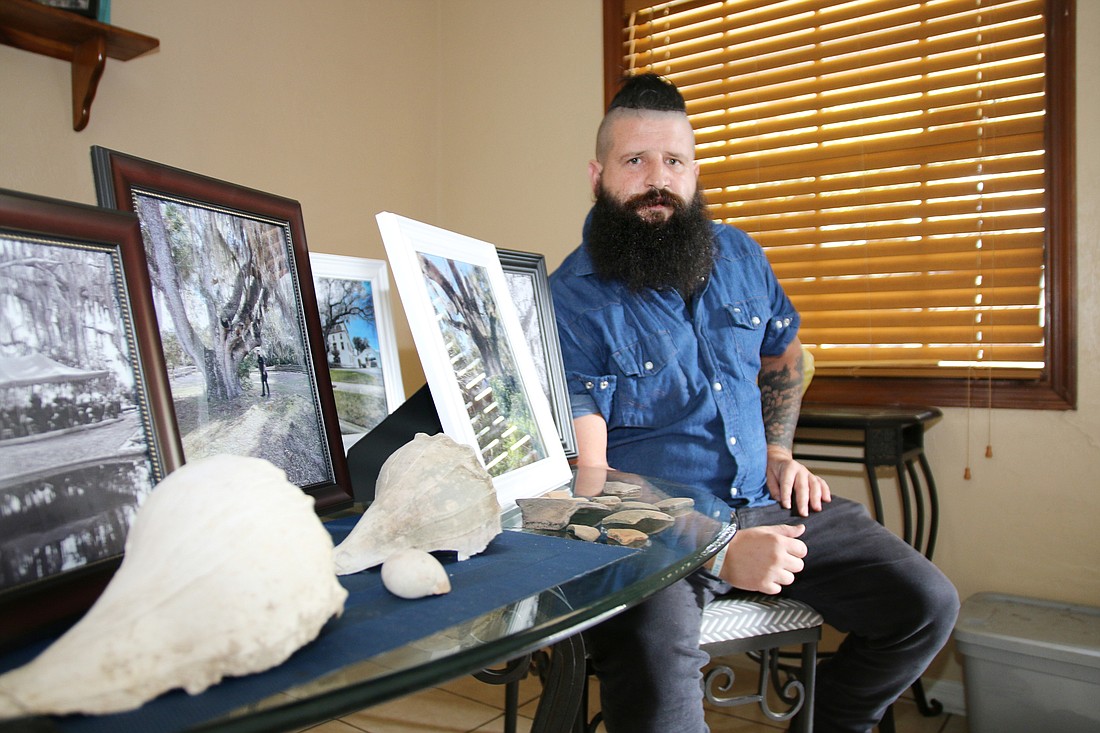- December 27, 2024
-
-
Loading

Loading

Growing up, the area around the Tomoka basin was Jordan Hobson's stomping grounds.
It was his grandfather's favorite place, and over the years, Hobson has taken to exploring it as much as possible — and documenting as much of it as he can.
“Not a lot is taught about local history, and we live in an area in Florida that happens to be rich — the east coast of Florida is rich in local history," Hobson said.
About four months ago, the Holly Hill resident began a "Then and Now" project where he researches local historic photographs and revisits the pictured site to capture how it stands today. He's compiled about 15 photographs in the series so far, mainly from the Ormond Beach and Daytona Beach area.
It's a labor of love for the "amateur historian," as Hobson calls himself, and he frequently posts his photo comparisons in Facebook groups dedicated to remembering and discussing local history. In November, Hobson also decided to join the Halifax Historical Society, and at 33 years old, he's one of the group's youngest members.
One of his favorite "Then and Now" photographs in his project is the one about the lost causeway, a section of road in the Tomoka State Park area that, according to a 1986 Orlando Sentinel article, is believed to be a side street to King's Road, which linked Georgia to New Smyrna Beach and was built during the American Revolution. The road, now hidden in Florida brush, runs through marshy John's Island, located between the Tomoka River and the Thompson and Strickland creeks.
The causeway, with its mysterious origins, captivated the Facebook groups Hobson showcased the photographs in, because many had never heard of it before.
Another of his notable photographs are of the Fagen Oak, a historic tree on the Three Chimneys Sugar Mill and Rum Distillery archeological site in Ormond Beach. The tree is over 150 years old, and Hobson was able to find a photo of a 1915 postcard featuring the tree — but with a "tree house," built by Ormond Beach pioneer Billy Fagen who set up a tourist attraction at the Three Chimneys property known as Camp Fagan, according to the Ormond Beach Historical Society's website. The attraction had a small museum, a couple alligators from Hotel Ormond and the platform so visitors could see the ocean.
Hobson hopes his photo project serves like a "mini-time capsule" for future generations.
“Those pictures never leave," he said. "They never go away. People will find them.”
As a driver for Votran, Hobson is constantly seeing how the community is changing. Growth is impossible to halt, he said, but that's why he stresses the importance of preserving local history.
“It’s a little different than them just telling you or writing it out, but if you visually put it in front of somebody, I think that’s what really captures them," he said. "It definitely takes them back.”
Hobson believes local history needs to be taught more in schools, and at the same time, longtime residents like himself need to take it upon themselves to try to get newcomers interested in the subject — entice them to reach out to the historical societies in the area and visit the various museums.
“That’s why I like to put this stuff out there — get some younger folks interested in it, and not just worry about what’s going on around the world," Hobson said. "There’s a lot that happens right here at home.”